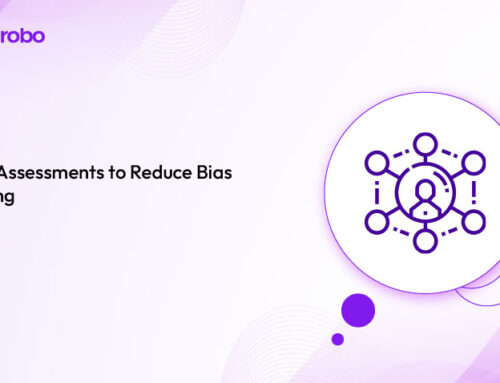
Key Takeaways
- Sales skill assessments objectively evaluate critical competencies such as communication, negotiation, and objection handling.
- Rigorous assessments help reduce hiring biases and prevent costly mis-hires.
- Data-driven evaluations reveal technical sales abilities and key soft skills like adaptability and resilience.
- Customized online tests streamline recruitment and enhance overall sales team performance.
The Need for Sales Skill Assessments
Hiring top-tier sales talent is essential to drive revenue and foster lasting customer relationships. Just as you wouldn’t hire a software engineer without a coding assessment test, evaluating a salesperson’s ability is crucial to ensure they can effectively promote your products and represent your brand. Traditional interviews and resumes often fall short, leaving a gap in assessing real-world sales capabilities. Sales skill assessments fill this gap by testing core competencies—ranging from communication and negotiation to problem-solving and technical proficiency. These assessments provide objective insights into candidates’ potential, helping organizations make informed hiring decisions.
Across diverse US markets—from bustling urban centers like New York and Los Angeles to thriving suburban regions—companies are turning to data-driven tools to boost employee retention and drive performance. This blog outlines five actionable tips to leverage sales assessments for hiring professional sales talent, backed by industry stats and best practices.
What are Sales Skill Assessments?
A sales skill assessment test is a structured tool designed to evaluate the professional abilities of sales candidates. It typically consists of questions and scenarios crafted to gauge various aspects of a candidate’s sales acumen. Here’s what these assessments cover:
- Goal Setting & Motivation: Evaluate a candidate’s drive and ability to set realistic targets.
- Communication & Presentation: Tests clarity, persuasiveness, and the ability to handle objections.
- Problem-Solving & Critical Thinking: Assesses the capacity to analyze situations and provide effective solutions.
- Technical Proficiency: Measures familiarity with CRM systems and other sales tools.
- Personality & Teamwork: Gauges interpersonal skills and cultural fit within your team.
Example: A candidate might be asked to draft an email addressing a common customer objection, simulating a real-life scenario that reveals their communication and problem-solving skills.
The Importance of Sales Assessments
Evaluating sales candidates through targeted assessments is not just a luxury—it’s a necessity. Consider these compelling reasons:
- Mitigate Hiring Risks: According to Inc.com, 75% of sales hires fail within the first year. Comprehensive assessments can significantly reduce this risk.
- Prevent Resume Inflation: A Checkster survey found that 78% of applicants exaggerate their resumes, while 66% of hiring managers admit to insufficient checks.
- Drive ROI with Sales Training: Organizations investing in regular sales training report an ROI of up to 353%, compared to higher turnover in companies that neglect training.
Integrating sales skill assessments into your recruitment process enhances candidate selection and builds a high-performing, motivated sales team.
Key Traits of Top-Performing Sales Reps
Successful sales professionals share common traits that distinguish them from the rest. Effective skill assessments should evaluate:
1. Excellent Communication
Successful sales professionals excel in conveying their ideas with clarity and precision. They articulate value propositions in a way that resonates with potential clients, ensuring that the benefits of a product or service are understood immediately. Their communication skills also include adept handling of objections, enabling them to respond confidently and effectively to any concerns raised during negotiations.
2. Strong Negotiation Skills
Top sales talent demonstrates exceptional negotiation skills, consistently closing deals while maintaining strong and positive customer relationships. They are skilled at balancing assertiveness with empathy, ensuring that each transaction benefits both parties. This ability to negotiate effectively not only drives immediate sales but also builds long-term trust and loyalty with clients.
3. Resilience and Adaptability
The nature of sales demands persistence, as rejection is an inevitable part of the process. Successful sales professionals exhibit resilience by bouncing back from setbacks and continually seeking new opportunities. Their adaptability allows them to adjust strategies quickly in response to changing market conditions or customer feedback, ensuring they remain competitive in a dynamic environment.
4. Analytical Thinking
A key trait of effective salespeople is their strong analytical thinking. They are adept at interpreting customer data, identifying emerging market trends, and leveraging this information to tailor their sales approach. By understanding the nuances of customer needs, they can devise strategies that target the right audience, ultimately leading to more effective and efficient sales processes.
5. Emotional Intelligence
Emotional intelligence is critical in sales, as it enables professionals to connect with clients on a deeper level. This trait involves recognizing and managing one’s own emotions, as well as empathizing with the emotions of others. High emotional intelligence helps salespeople build rapport, navigate complex interpersonal dynamics, and maintain a positive attitude even in challenging situations.
Tip: Use visual charts or infographics in your assessment reports to highlight these traits and compare candidate profiles.
5 Tips for Hiring Professional Sales Talent Using Skill Assessments
Evaluating a candidate’s sales potential requires a blend of testing their technical skills and assessing their interpersonal abilities. The following tips provide actionable steps to ensure you hire sales talent that aligns with your company’s needs:
1. Communication Assessment
Begin by evaluating a candidate’s written and verbal communication skills. Ask candidates to draft a prospecting email or participate in a brief phone simulation. Look for clarity, tone, responsiveness, and their ability to handle objections effectively. A sample question like, “Write an email response to a hesitant customer,” can reveal their capacity to engage and persuade.
2. Problem-Solving and Critical Thinking Assessment
Assess the candidate’s ability to think on their feet with scenario-based questions that simulate common sales challenges. Look for logical reasoning, creativity, and actionable solutions in their responses. For example, asking, “Explain how you’d handle a dissatisfied key client,” in a critical thinking tests helps you gauge their problem-solving approach, critical thinking, and resilience under pressure.
3. Take-Home Exercises and Role-Play
Simulate real-world sales situations by providing take-home assignments or scheduling role-play sessions. This approach allows candidates to demonstrate their research skills, preparation, and effective execution of sales strategies. An exercise might involve creating a compelling sales pitch for a new product, which offers insights into their strategic thinking and practical application.
4. Simulated Sales Pitch
Test the candidate’s performance under pressure by conducting a live, simulated sales pitch session. Evaluate their presentation skills, market research capabilities, and how they engage with an audience. Assign a task like preparing a 10-minute pitch for a well-known product, as this scenario can reveal their ability to synthesize information and deliver persuasive arguments.
5. Soft Skills Evaluation
Beyond technical prowess, assess essential soft skills such as empathy, resilience, time management, and teamwork through personality assessments or behavioral interviews. Ask questions like, “Describe a time when you turned a negative interaction into a positive outcome,” to understand how they manage stress and build rapport with customers.
Best Practices for Implementing Sales Assessments
To maximize the effectiveness of your sales assessments, follow these best practices to integrate them seamlessly into your recruitment process:
1. Integrate with ATS
Embed your sales assessments into your Applicant Tracking System for a seamless workflow. This integration ensures that all candidate data, from initial tests to final evaluations, is centralized and easily accessible, streamlining your overall hiring process.
2. Train Your HR Team
Equip recruiters with the skills and knowledge to interpret assessment data effectively. Provide training sessions or workshops focused on understanding test metrics, identifying red flags, and leveraging assessment outcomes to make informed hiring decisions.
3. Leverage Visual Data
Utilize charts, infographics, and dashboards to visualize candidate strengths and weaknesses. Visual representations can simplify complex data, making it easier for hiring teams to compare candidates and identify top performers at a glance.
4. Regular Reviews
Continuously update your assessment tools to reflect evolving market trends and emerging sales methodologies. Regular reviews help ensure that your assessments remain relevant and are fine-tuned to measure the most critical sales skills.
5. Gather Feedback
Collect input from hiring managers, candidates, and HR teams to refine your assessment process. Implement feedback loops where you adjust test questions, formats, and evaluation criteria based on real-world performance and evolving business needs.
By expanding on these tips and best practices, your organization can create a robust, data-driven approach to hiring sales talent, ensuring you select candidates who not only excel in technical sales skills but also possess the soft skills necessary for long-term success.
How SkillRobo Enhances Your Sales Hiring
SkillRobo’s pre-hiring assessment software revolutionizes the sales recruitment process by offering customizable, data-driven assessments. With SkillRobo, you can create tailored sales tests for various roles—from Sales Development Representatives (SDRs) to Sales Managers—ensuring that each candidate is evaluated on skills that matter.
The platform offers real-time analytics and integrates seamlessly with your ATS, helping you make objective, informed decisions. SkillRobo’s user-friendly interface and comprehensive reporting empower HR professionals to identify top talent, streamline hiring, and ultimately build a high-performing sales team that drives revenue and growth.
Final Thoughts
In conclusion, integrating robust sales skill assessments into your hiring strategy is essential for building a high-performing sales team that drives revenue and fosters customer loyalty. By leveraging data-driven tools and customized evaluations, you can mitigate hiring risks and identify top talent with the right blend of technical and soft skills. Don’t leave your sales success to chance—take control of your recruitment process with our innovative pre-hiring assessment software. Sign up today and experience the difference that precise, actionable insights can make in transforming your sales hiring outcomes. Empower your team with smarter hiring decisions now.
FAQs
1. What is a sales skill assessment test?
A sales skill assessment test evaluates a candidate’s abilities in areas such as communication, negotiation, problem-solving, and technical proficiency to ensure they can meet the demands of a sales role.
2. Why are sales assessments important?
Sales assessments help reduce hiring risks by objectively measuring key competencies, preventing mis-hires, and improving overall team performance.
3. How does SkillRobo streamline the hiring process?
SkillRobo offers customizable assessments, real-time analytics, and seamless integration with ATS systems, enabling data-driven hiring decisions.
4. What soft skills are evaluated in sales assessments?
Soft skills such as emotional intelligence, resilience, teamwork, and time management are evaluated to ensure a well-rounded candidate profile.
5. Can sales assessments reduce employee turnover?
Yes, by selecting candidates with the right skills and mindset, sales assessments can improve job fit and reduce turnover, leading to a more stable sales team.
Table of content
- Key Takeaways
- The Need for Sales Skill Assessments
- What are Sales Skill Assessments?
- The Importance of Sales Assessments
- Key Traits of Top-Performing Sales Reps
- 5 Tips for Hiring Professional Sales Talent Using Skill Assessments
- Best Practices for Implementing Sales Assessments
- How SkillRobo Enhances Your Sales Hiring
- Final Thoughts
- FAQs









